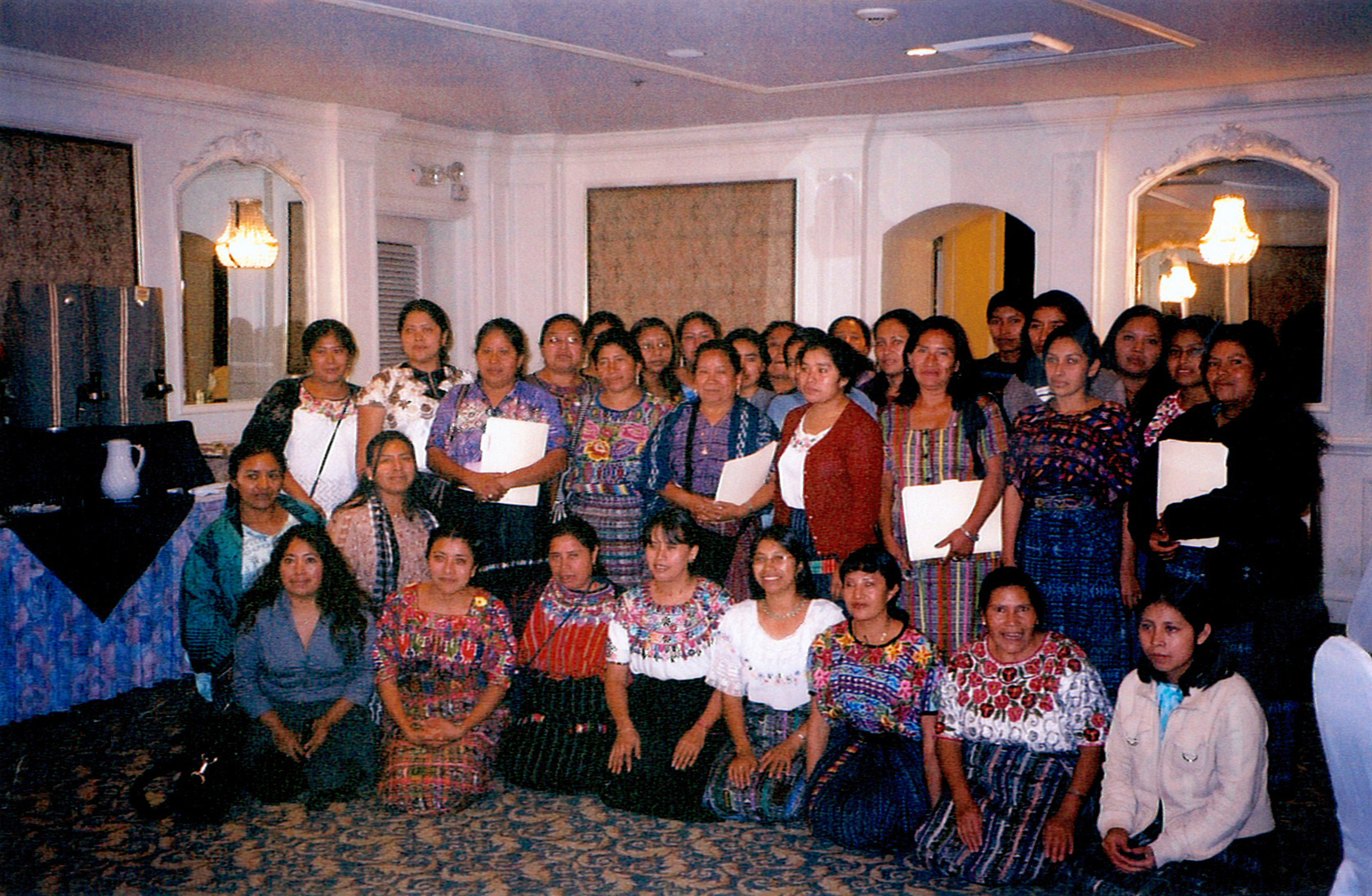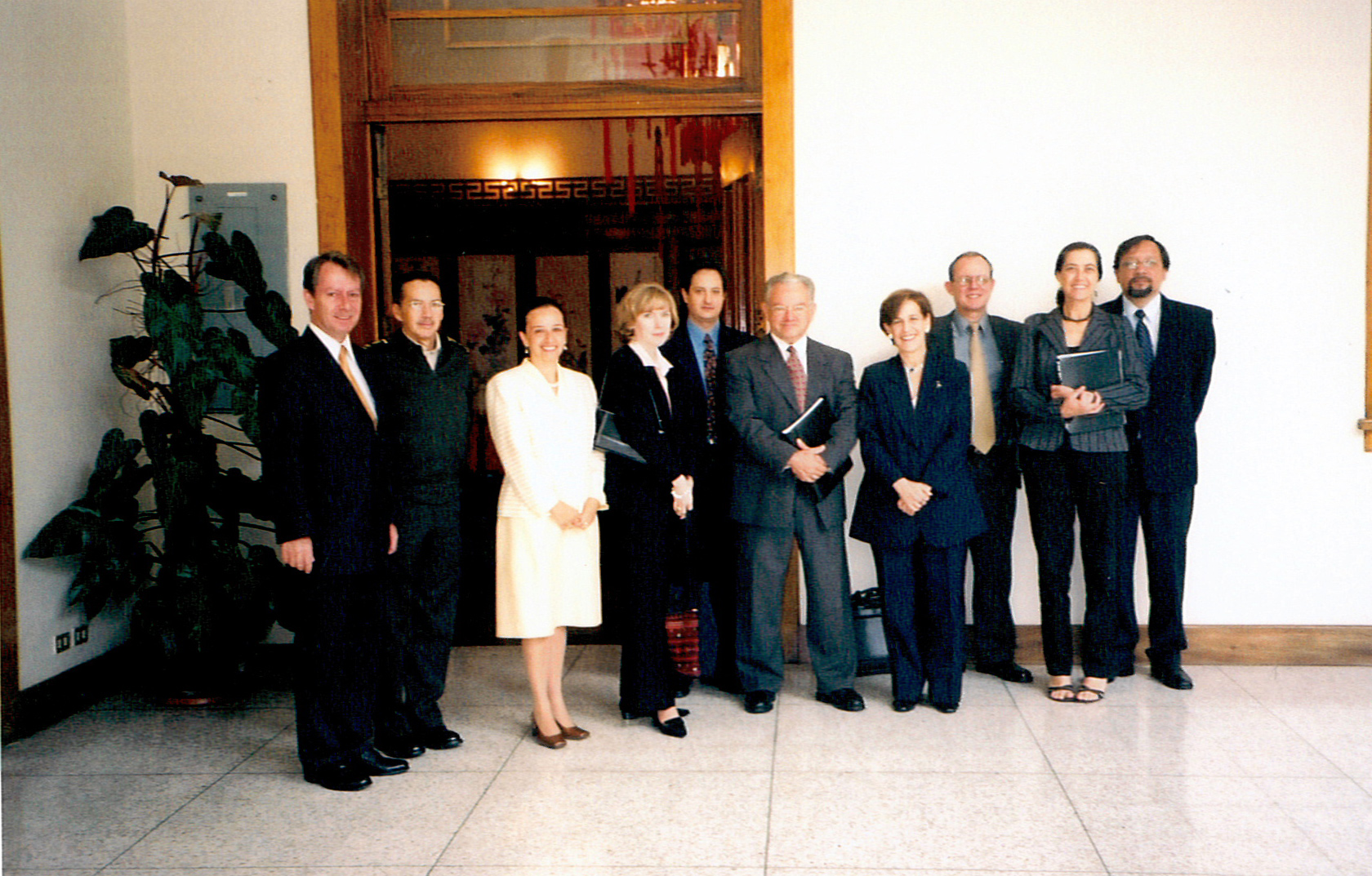- English
- Español

Promotion and Other Activities
2014
United States: Round Table "Violence against women and sexual and reproductive rights in the Americas"
Washington D.C., December 2, 2014
The specialist who supports the work of the Rapporteurship for Women participated on December 2, 2014, in the Round Table: Violence against women and sexual and reproductive rights in the Americas: Persistent advances and challenges, organized jointly by the Inter-American Commission of Women (CIM), the Permanent Observer Mission of France to the OAS and the Pan American Health Organization (PAHO) in Washington, DC. The specialist offered the presentation: "Sexual and Reproductive Rights in the Americas: A Hemispheric Look". The event was attended by Ambassador Jean-Claude Nolla, Permanent Observer of France to the OAS; Carmen Moreno, Executive Secretary of the CIM; Marissa Billowitz, Associate Director of Programs, International Planned Parenthood Federation / Western Hemisphere (IPPF / WHR); Diana González Perrett, Expert from Uruguay, Committee of Experts of the Follow-up Mechanism of the Convention of Belém do Pará (MECECVI); Alessandra Guedes, Regional Advisor, Family Violence, PAHO / WHO; Paula Ávila, Advisor for Latin America and the Caribbean, Center for Reproductive Rights; Vlado Mirosevic Verdugo, Deputy, Chamber of Deputies, Chile; Dinys Luciano, Director, Development Connections; and Tazeen Hasan, Legal Specialist, Gender Unit, World Bank.
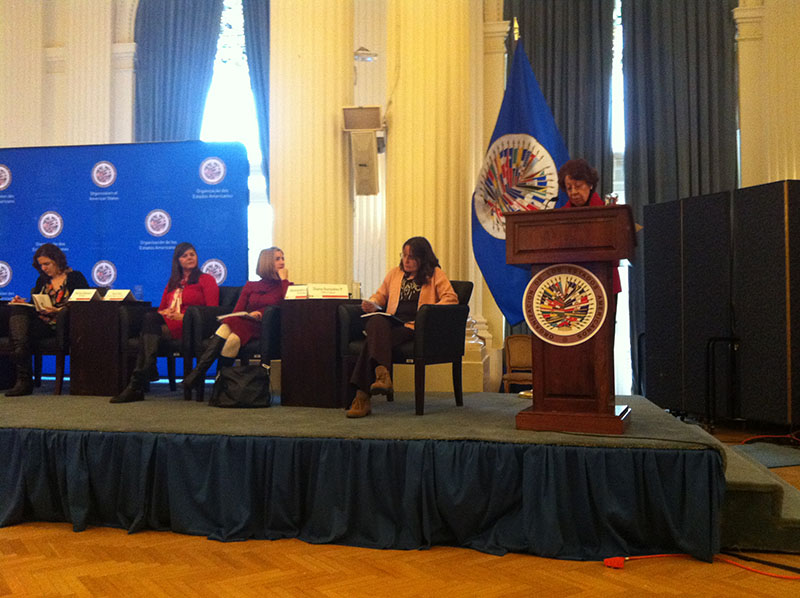
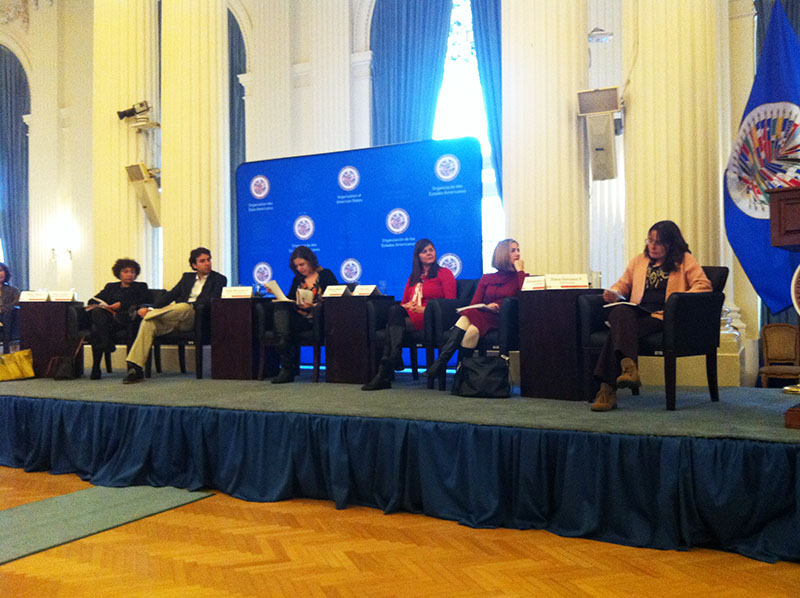
United States: Women's Rights in the Americas
October 28, 2014
On October 28, 2014, the United Nations Rapporteur on Violence against Women and Commissioner, President and Rapporteur on Women's Rights Tracy Robinson also organized a private meeting with twenty representatives of civil society organizations to discuss their perspectives on priority issues regarding women's rights in the Americas. In particular, the participants discussed normative gaps in the field of international human rights law related to violence against women and priorities regarding international and regional treaties that address this issue.
United States: Roundtable "Gender-based Violence and Reparations - A Hemispheric Overview after Twenty Years of the Adoption of the Convention Belém do Pará"
IACHR Headquarters, October 27
On October 27, 2014, during the 153 Period of Session, the roundtable "Gender-based Violence and Reparations - A Hemispheric Overview after Twenty Years of the Adoption of the Convention Belém do Pará" was held. The event was jointly organized by the Inter-American Commission on Human Rights (IACHR) and the Inter-American Commission of Women (CIM) of the Organization of American States (OAS).
The main presentation of the event was conducted by the UN Special Rapporteur on violence against women, its causes and consequences, Rashida Manjoo. She talked about the challenges of developing legal standards on reparations on violence against women. In particular, she spoke about the need to move towards a perspective of transformative reparations that address the structural roots of violence and aim at improving the situation of women in society. In this regard, the Special Rapporteur stated that "the implementation of states' obligations in reparations is not a reality; it remains grossly underdeveloped." She stressed that "reparations cannot be about returning women into the situation they were found before the individual instance of violence". The UN Rapporteur noted that, in this regard, there is a need for individual measures to be adopted along with "institutional and structural measures of transformation".
On her part, the Chair and Rapporteur on the Rights of Women of the IACHR, Tracy Robinson, offered the welcoming remarks. In her speech, the Chair traced the historical achievement of the Convention of Belém do Pará, which is "the first such Convention in the world to address violence against women and the most ratified human rights convention in the inter-American system". The Rapporteur of the IACHR stated that "violence against women [...] is regrettably an ordinary feature of life throughout the Americas, engrained and endemic." She also indicated that the Commission has noted shortcomings in the conquest of "transformative reparations".
The roundtable also featured the specialized comments of Carmen Moreno, Executive Secretary of the CIM, who stressed the importance of access to justice so that the repairs can be achieved, and of Luz Piedad Caicedo, Research Coordinator of "Corporación Humanas Colombia". The discussion also featured comments from members of the public.
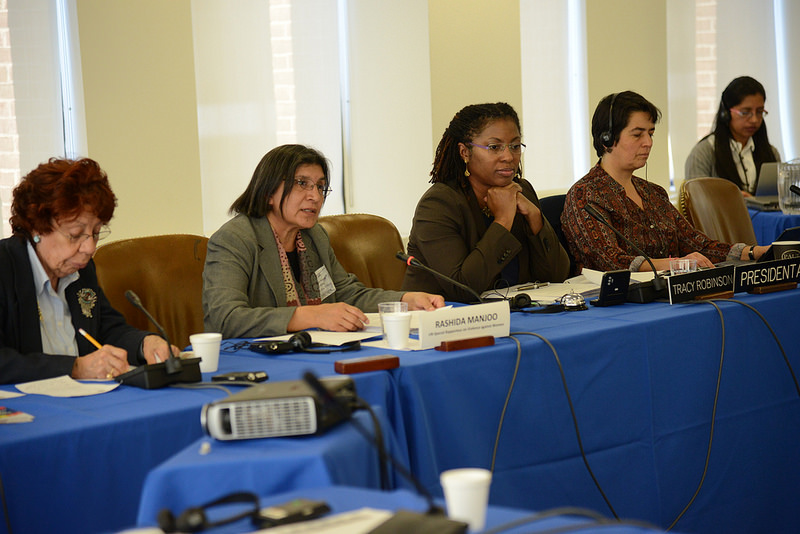
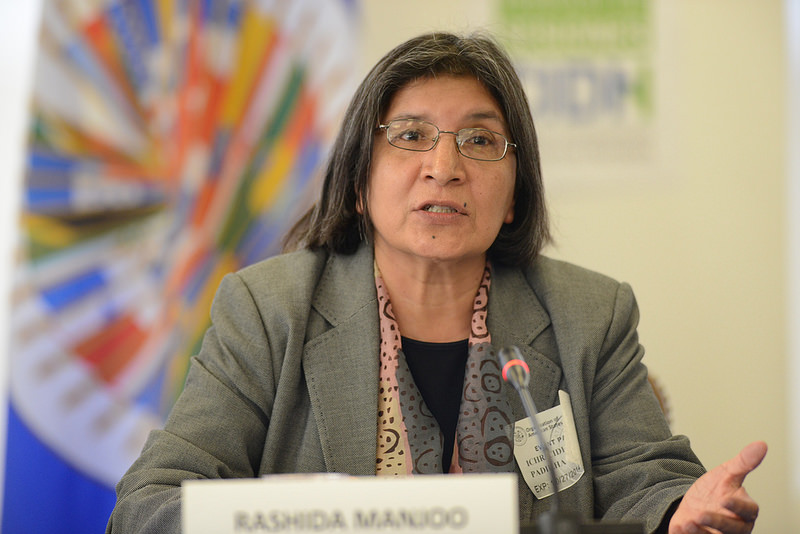
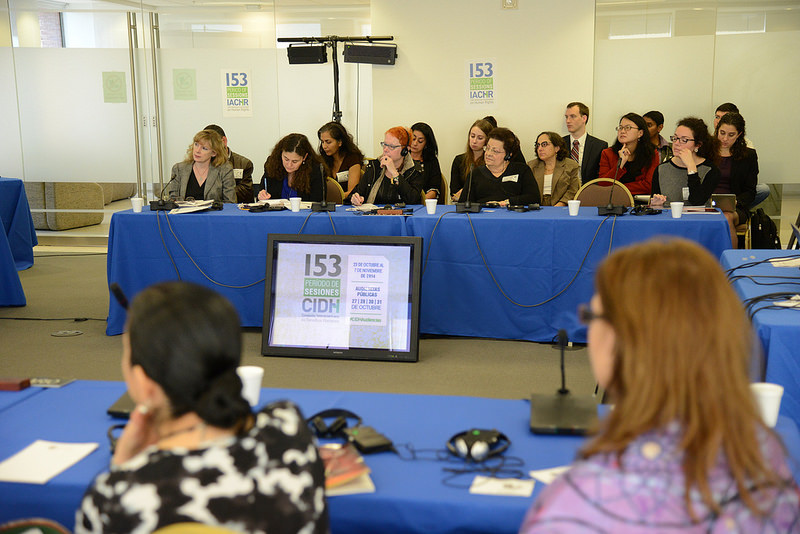
Switzerland: Discrimination Against Women in Law and in Practice
Geneva, October 10, 2014
On October 10, 2014, the Rapporteur also participated in a seminar in Geneva on discrimination against women in the family and cultural life organized by the United Nations Working Group on Discrimination against Women in Law and in Practice .
United States: Webinar: challenges and progress in the implementation of the provisions contained in the Convention of Belém do Pará
Washington D.C., August 29, 2014
On August 29, 2014, Rapporteur Tracy Robinson and her team participated in a webinar in Washington, DC with civil society organizations working to advance women's rights in the Americas on the challenges and progress in the implementation of the provisions contained in the Convention of Belém do Pará. The event was attended by the following organizations: CEJIL, Center for Reproductive Rights, Latin American and Caribbean Committee for the Defense of Women's Rights (CLADEM), Amnesty International, IPAS, JASS, PROMSEX, PROMDSR, Collective Women and Health of the Dominican Republic, Latin American and Caribbean Women's Health Network, Sisma Mujer, and the World Network of Women for Reproductive Rights.
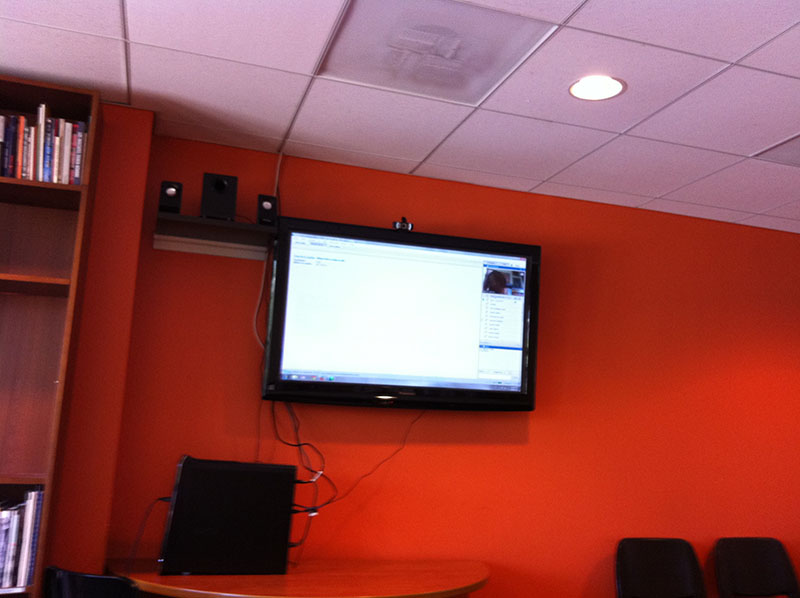
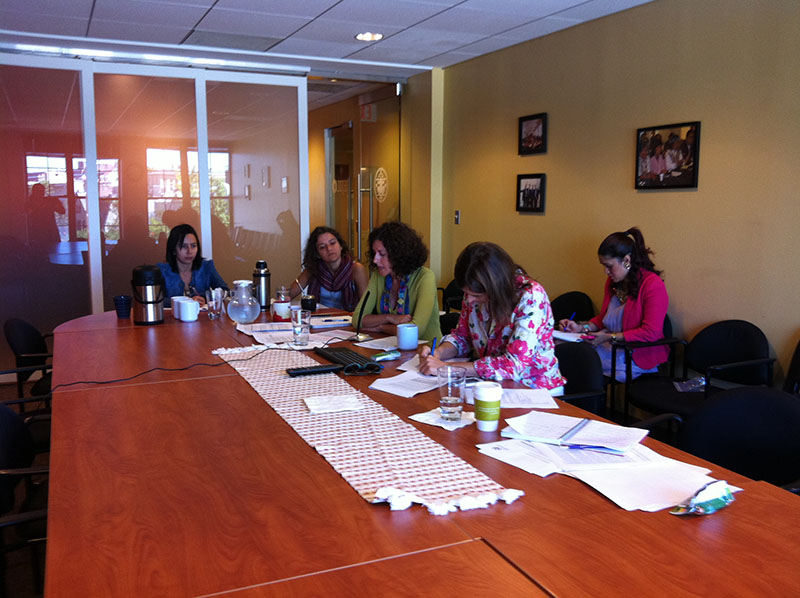
Violence against Women in Mexico: Challenges and Pending to Comply with International Obligations in the matter
Mexico, August 19, 2014
On August 19, 2014, Rapporteur Tracy Robinson participated as a keynote speaker at the event "Violence against Women in Mexico: Challenges and Pending to Comply with International Obligations on the Matter". This event took place in Mexico and was organized by the organizations CEJIL, Miguel Agustín Pro Juárez Human Rights Center, AC, Jass, CEDEHM, the Mountain Human Rights Center, and the Human Rights Program of the University of Mexico.
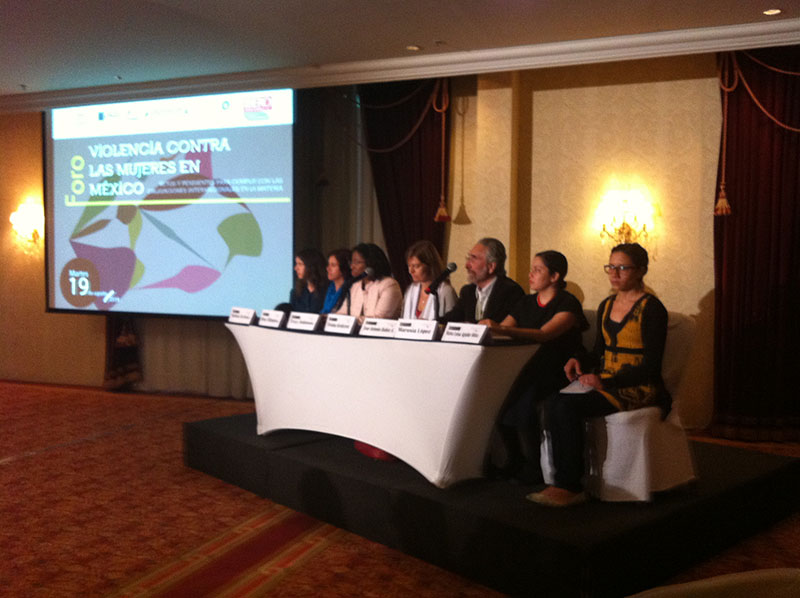

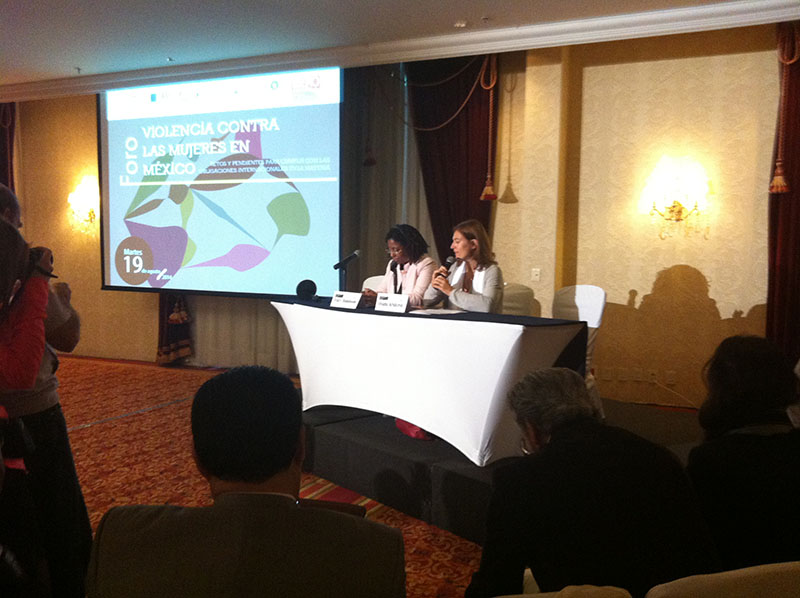
United States: Discussion: challenges of women human rights defenders in the performance of their work in the Mesoamerican region
August 15, 2014
On August 15, 2014, the specialist who supports the work of the Rapporteurship for Women participated in a discussion on the challenges faced by women human rights defenders in the performance of their work in the Mesoamerican region. This event was organized by the organizations CEJIL, Centro de Derechos Humanos Miguel Agustín Pro Juárez, AC, Jass, the Mesoamerican Initiative for Women Human Rights Defenders, the International Service for Human Rights, the Women Human Rights Defenders International Coalition, UN Women, the Office of the United Nations High Commissioner for Human Rights and had the support of the Government of Norway.
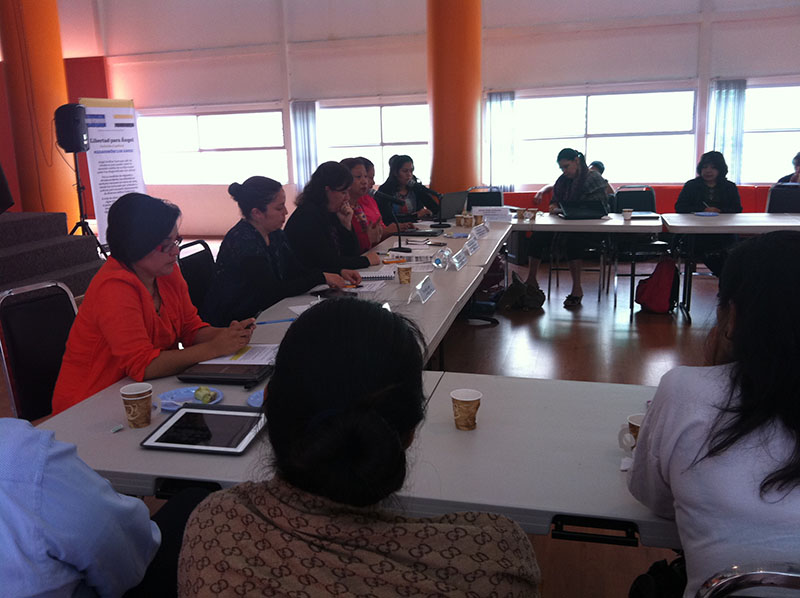
Paraguay: Contributions to the Selection Process for Members of the Inter-American Commission and Court of Human Rights
Asuncion, June 2, 2014
On June 2, 2014, the Rapporteur on the Rights of Robinson Women participated as a speaker at the event " Contributions to the Selection Process for Members of the Commission and the Inter-American Court of Human Rights " organized by CEJIL and by the International Coalition of Human Rights Organizations of the Americas in Asunción, Paraguay.
2012
First Forum of Indigenous Authorities and the Government of Colombia
On October 6, 2012, the Rapporteurship participated in the First Forum of Indigenous Authorities and the Government of Colombia , which was organized by ONIC in Bogota, with the collaboration of the Presidential Council on Gender Equality, the Colombian Institute of the Family Wellbeing, and UNFPA. It had as its main objectives to promote joint actions to eradicate practices which violate the rights of indigenous women pertinent to their health and personal integrity. The event had the participation of indigenous authorities; various entities from the Colombian state; UNFPA and UNDP, among other international organizations.
Peru: Justice, Sexual Violence, Due Diligence and the Rights of Women
Lima, August 2012
The Rapporteur traveled to Peru between August 23rd and August 24th, 2012, with support from DEMUS. They held meetings with the Ministry of Women and Vulnerable Populations, with the Attorney General’s Office, and with organizations that work in the advancement of women’s rights issues in the country. The Rapporteur also offered presentations in two events with high-level officials from the justice sector where she addressed the themes of access to justice, sexual violence, due diligence, and the rights of women.
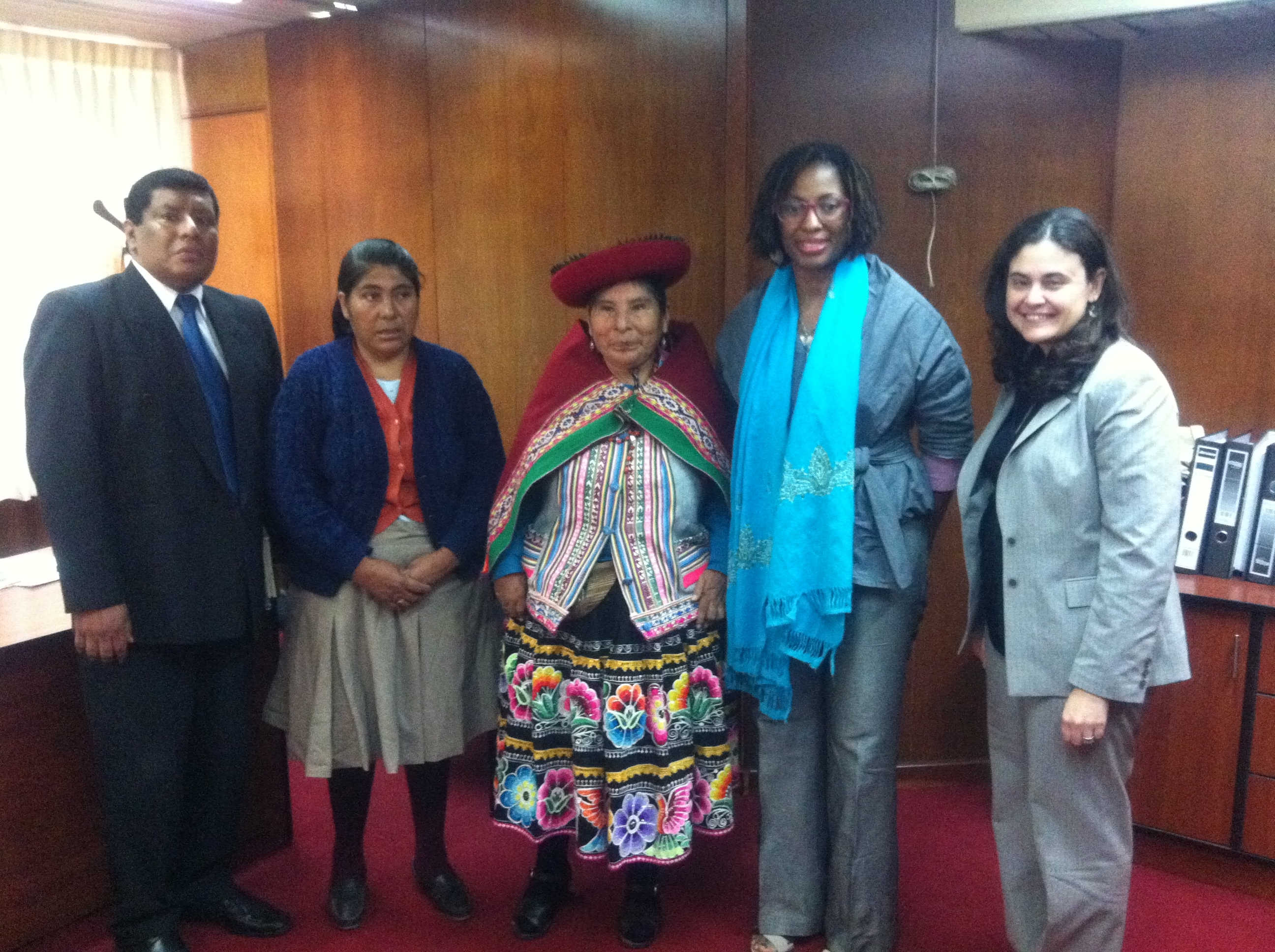

Course for Indigenous Women and Leaders in Costa Rica
From June 28th to July 1st, 2012, the Rapporteurship participated in a course on the Inter-American System oriented towards indigenous women in Boruca, Costa Rica. It was organized by Forest Peoples Program and had the participation of approximately 20 women and leaders who are members of the Indigenous Women’s Biodiversity Network. The participants stressed the need for the Commission to undertake a regional project to examine closely the main advances and challenges faced by indigenous women in the region and to publish a regional thematic report related to this issue.

Presentation before the Supreme Court of El Salvador
San Salvador, June 2012
On June 1st, 2012, the Rapporteur presented the report Access to Justice for Women Victims of Sexual Violence in Mesoamerica before Magistrates of the Supreme Court of El Salvador, and held meetings with the Executive Director of the Salvadoran Institute for Women (hereinafter “ISDEMU”), Ms. Yanira Argueta, with United Nations agencies, and civil society organizations, where the results of the report were discussed. All the activities in El Salvador were organized with support from UNFPA.
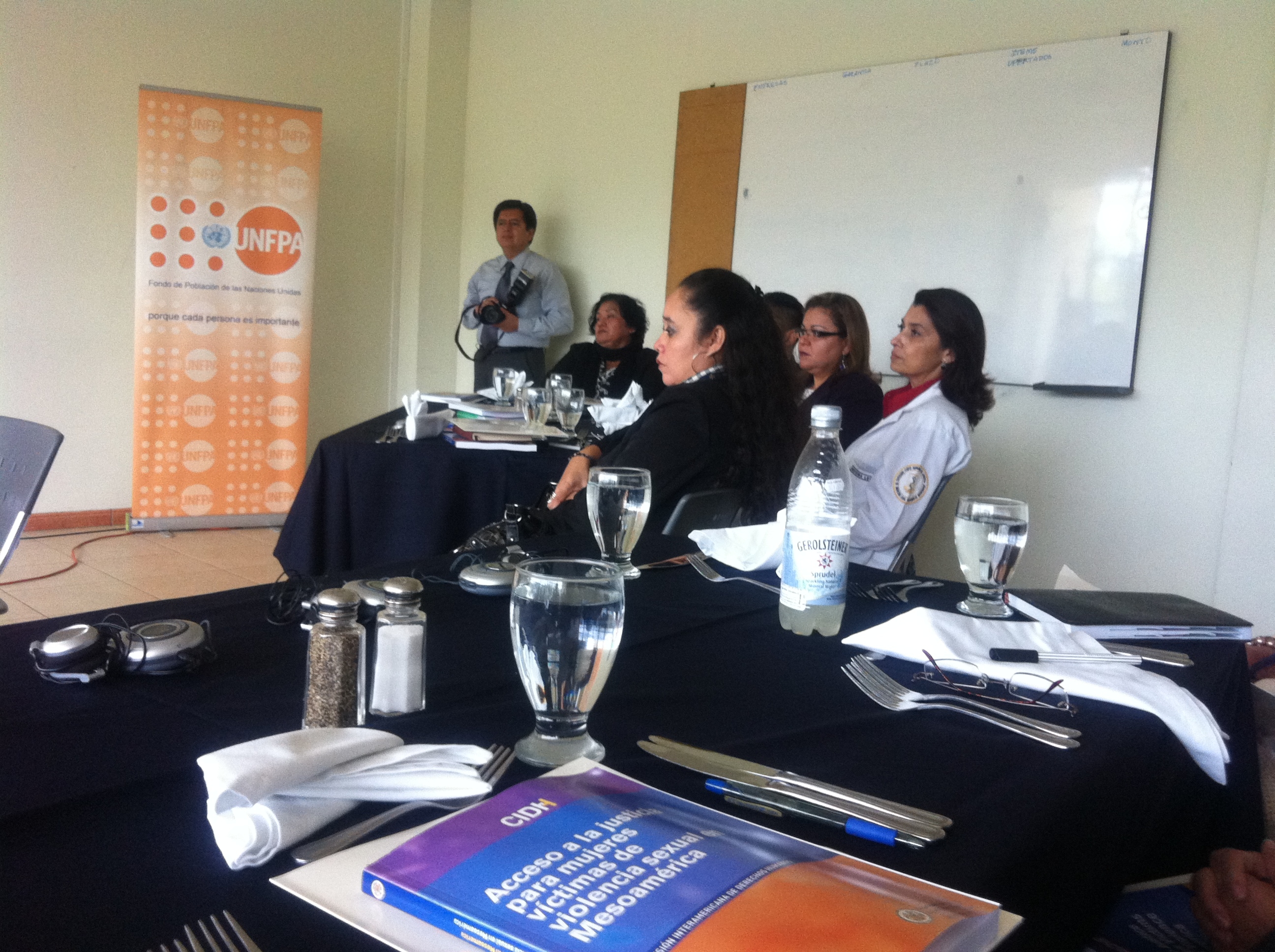
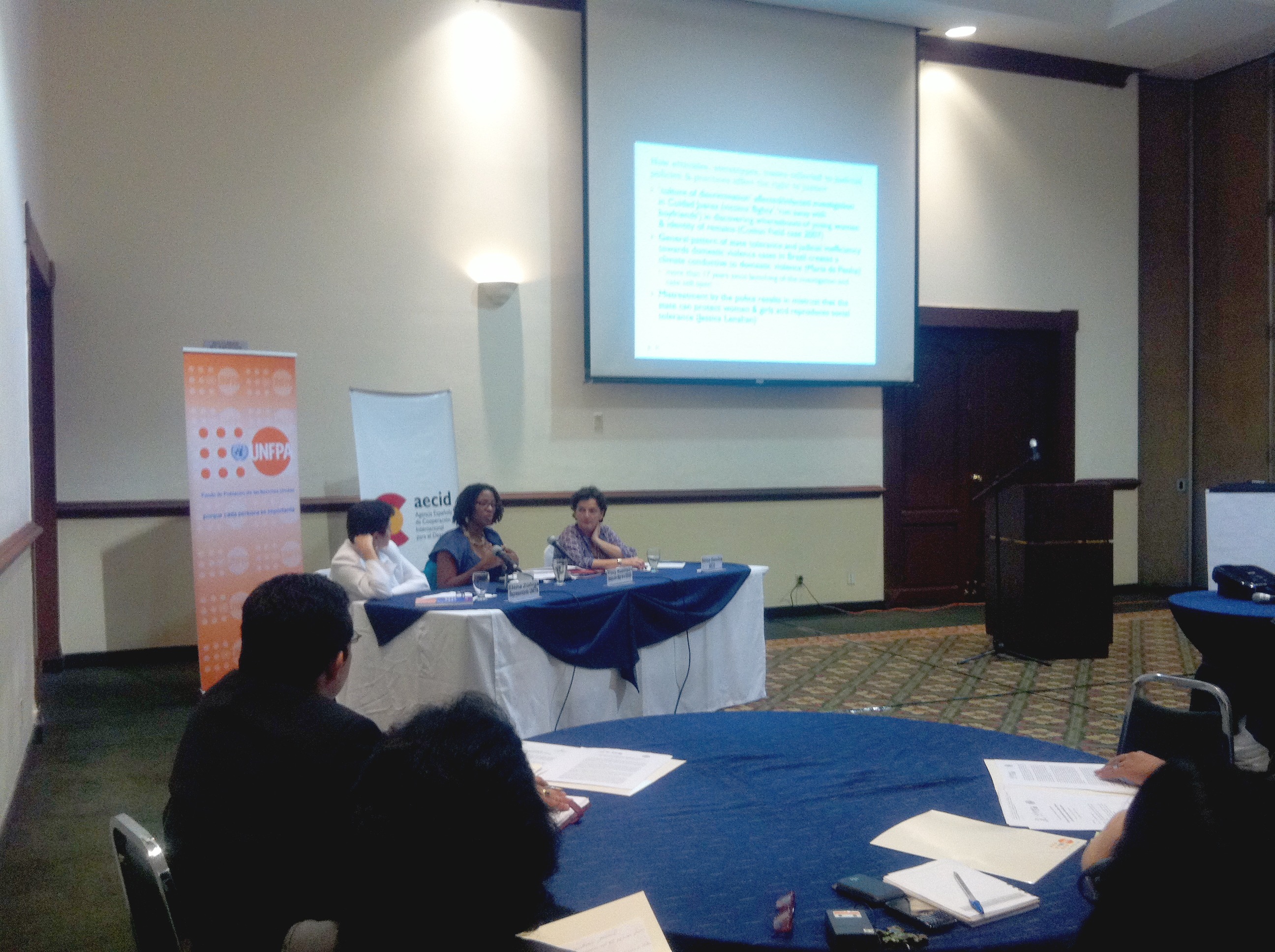
Guatemala: Presentation of the Report Access to Justice for Women Victims of Sexual Violence in Mesoamerica
Guatemala City, May 2012
On May 31st, 2012, the Rapporteur on the Rights of Women launched in Guatemala the report Access to Justice for Women Victims of Sexual Violence in Mesoamerica. More than 80 representatives from organizations working with sexual violence from 14 countries assisted to the presentation. This included public officials and members of the judiciary, as well as members of civil society organizations and international agencies. Delegations from Barbados, Belice, Colombia, Costa Rica, Ecuador, El Salvador, United States, Guatemala, Jamaica, Panama, Paraguay, Peru, Suriname and Uruguay participated in the event.
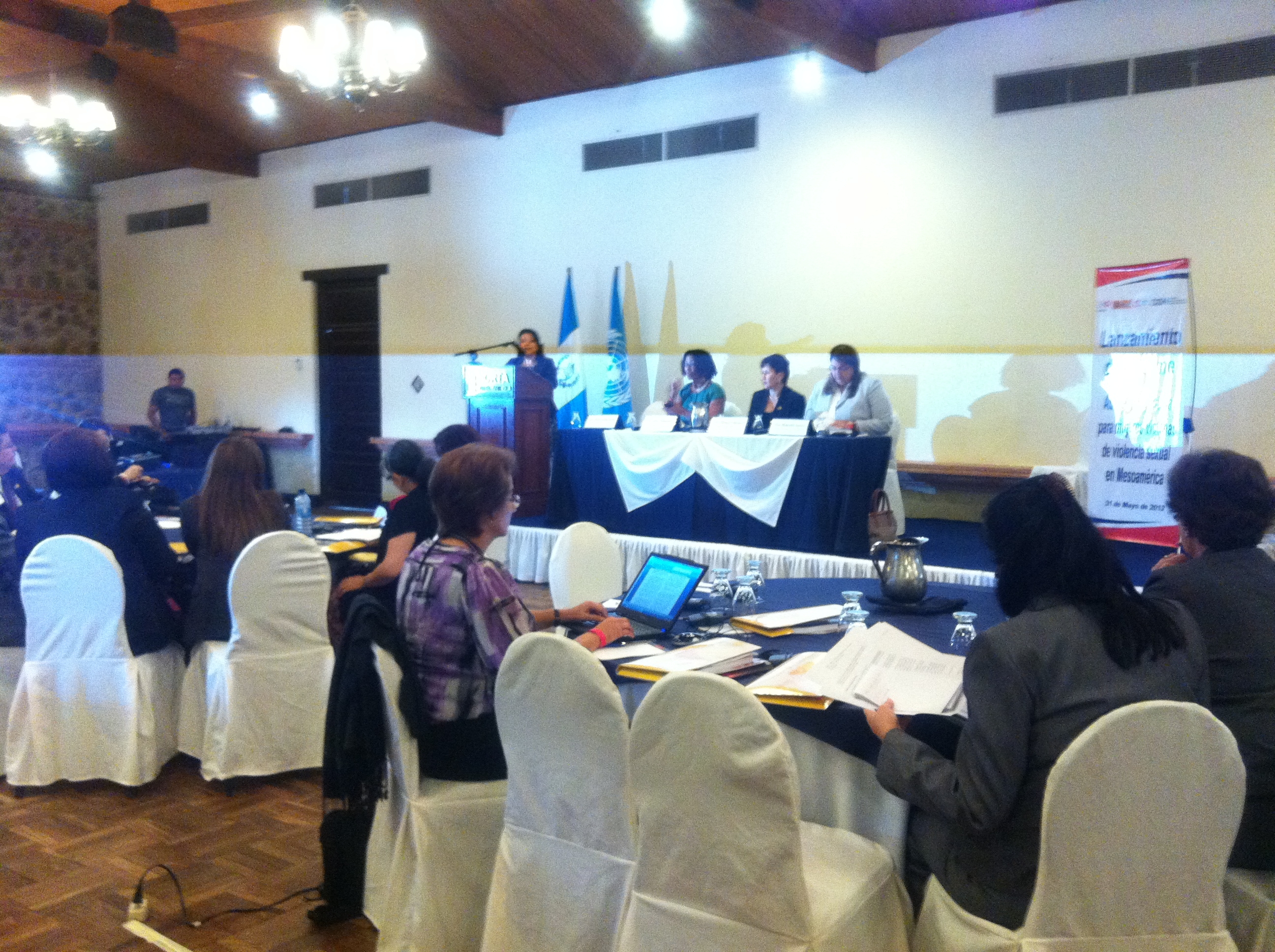
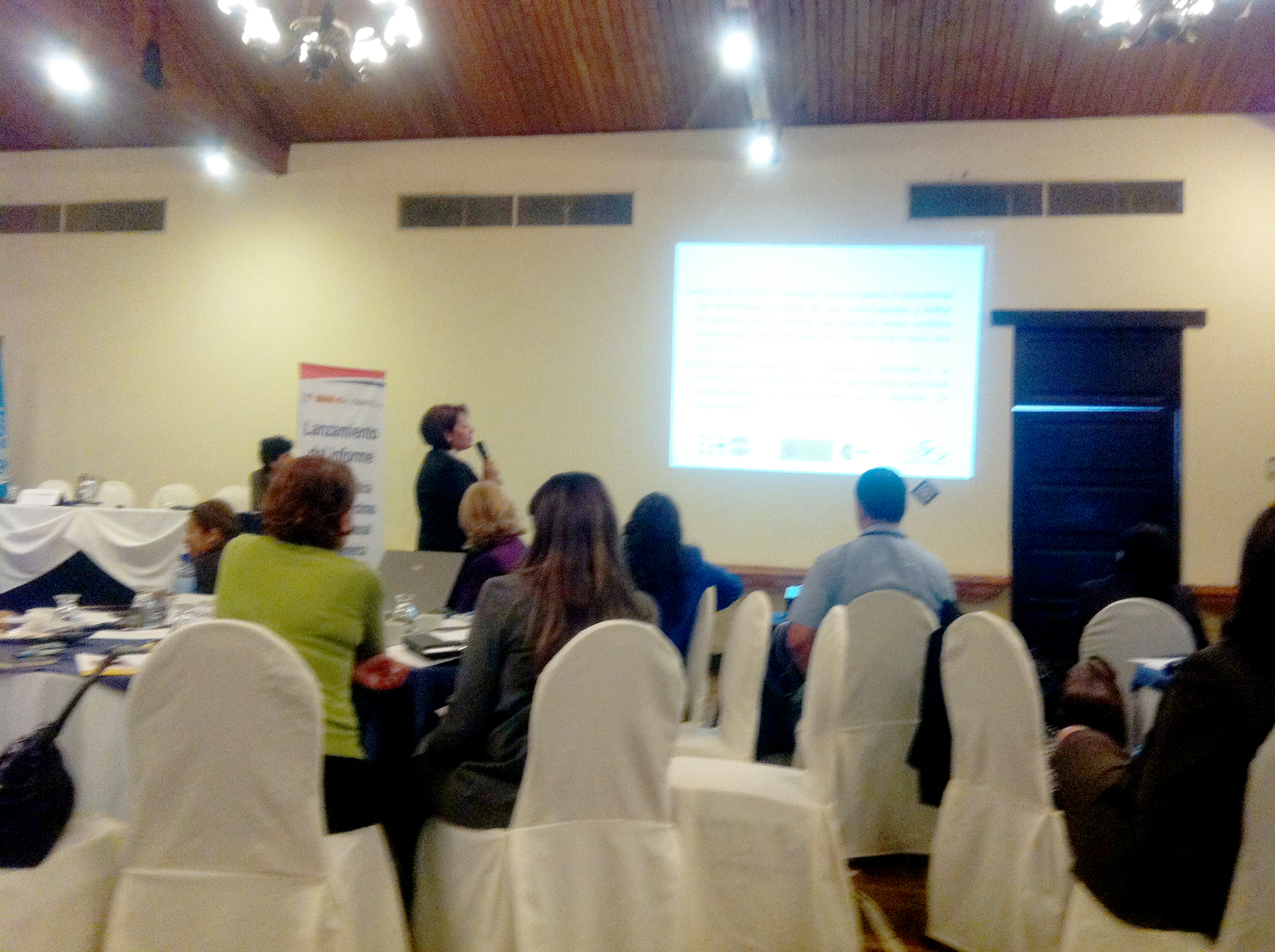
Challenges to Guarantee the Right to Health of Nicaraguan Women and Girls
Managua, May 2012
On May 28, 2012, the Rapporteur on the Rights of Women was the keynote speaker in the public forum Challenges to Guarantee the Right to Health of Nicaraguan Women and Girls , organized by International Pregnancy Advisory Services (IPAS), the Nicaraguan Center for Human Rights (Centro Nicaragüense de Derechos Humanos, CENIDH), the Autonomous Movement of Women, and the Center for Justice and International Law (CEJIL). During her stay in Nicaragua, the Rapporteur also participated in meetings with civil society organizations and with the President of the Supreme Court of Justice, Alba Luz Ramos.
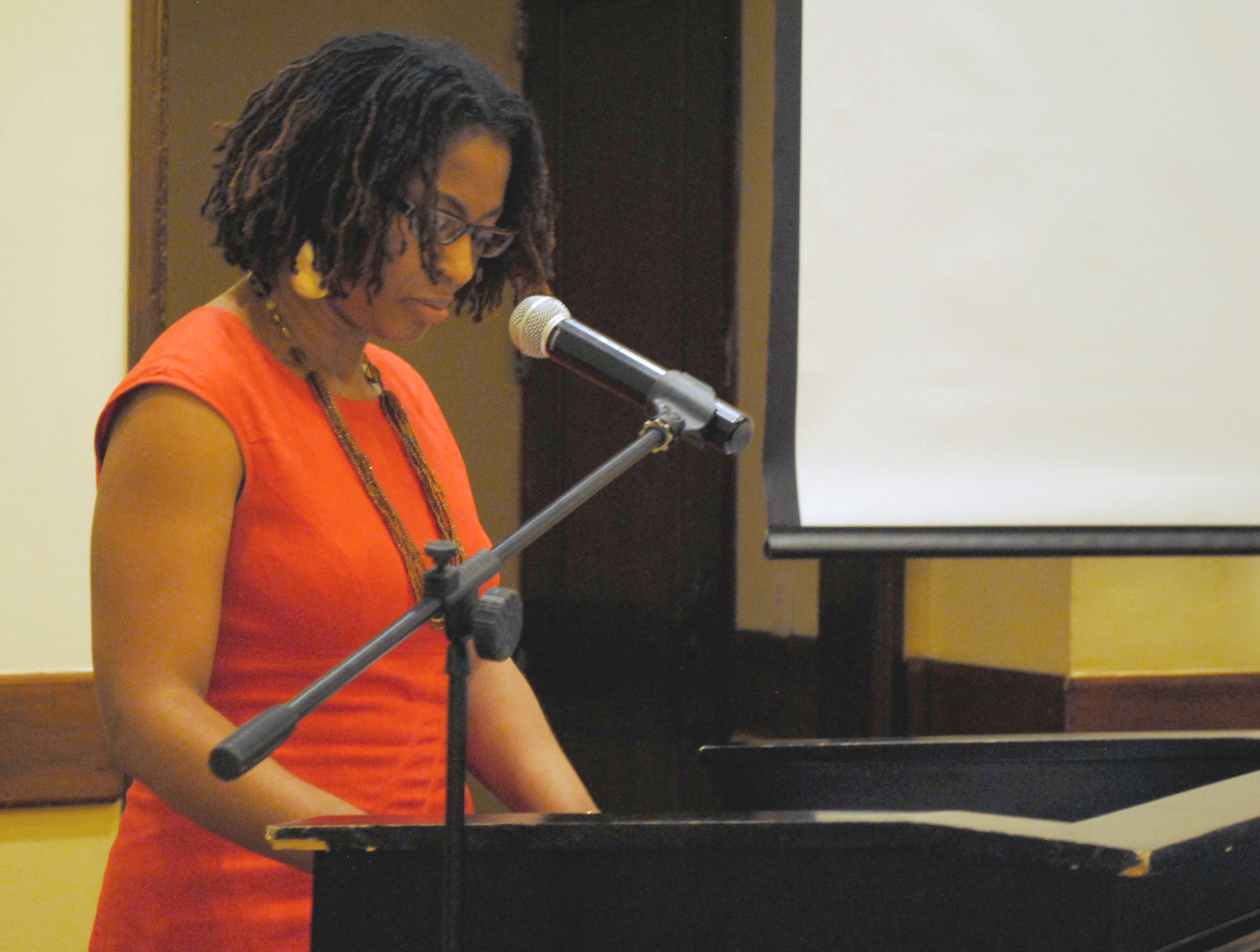
Mexico: The Inter-American Human Rights System and its Impact on the Protection of the Rights of Women
Villahermosa, Tabasco, May 2012
On May 23, 2012, staff from the Executive Secretariat of the IACHR made a presentation on "The Inter-American Human Rights System and its Impact on the Protection of the Rights of Women ," in the International Human Rights Congress "Origins, Development and Perspectives on Human Rights from a Multidisciplinary Vision." The Congress was held in Villahermosa, Tabasco, Mexico, from May 23 to 25, 2012, and was organized by the University Juárez Autónoma of Tabasco, Mexico.
Workshop in Haiti on sexual violence and access to justice
Haiti, February 2012
From February 6 to 8, 2012, the Rapporteurship on the Rights of Women participated in a workshop in Haiti related to the issue of sexual violence, access to justice, and medical certificates. The event was organized by MADRE, the CUNY School of Law, and the World Bank. During the visit to Haiti, the Rapporteurship received information related to the situation of violence against women and girls in Haiti.
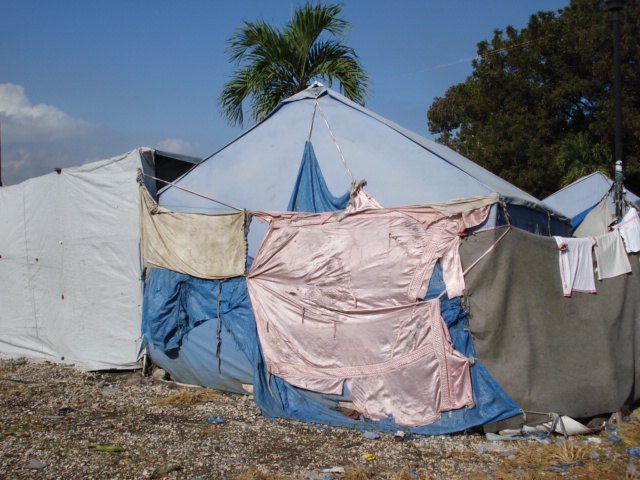
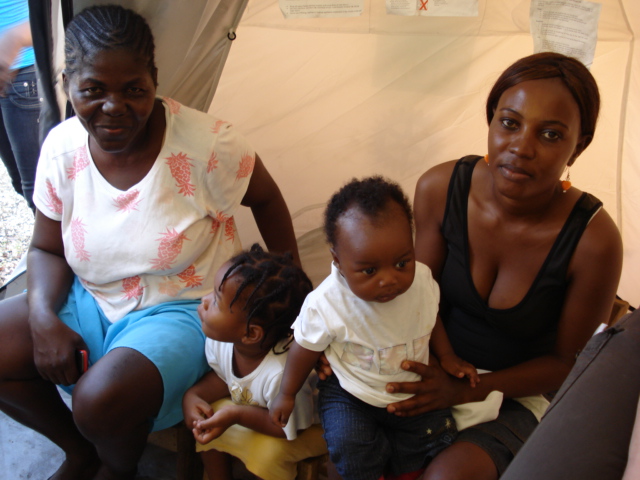
Guatemala: Integrated Responses to Human Rights, HIV and Violence against Women in Central America
Antigua, January 2012
On January 18, 2012, staff from the Executive Secretariat of the IACHR moderated the inter-sectorial meeting "Integrated Responses to Human Rights, HIV and Violence against Women in Central America ," held in Antigua, Guatemala. The event was organized by the Inter-American Commission on Women.
2011
Argentina National Congress
Buenos Aires, July 2011
On July 13, 2011, the Rapporteur participated in a public hearing on abortion before the Chamber of Deputies of the Argentina National Congress.
Promotion Activities of the Rapporteurship on Women's Rights in Peru
Lima, July 2011
The Rapporteur on the Rights of Women visited Lima, Peru, from July 11 to 12, 2011, in order to participate in a Meeting of Women's Organizations and Magistrates organized by the DEMUS institution. During the visit, the Rapporteur also held a meeting between the parties in the Case of María Mamérita Mestanza of Peru, as a follow-up to the friendly settlement agreement reached by the parties. The Rapporteur took this opportunity to present the report Access to Maternal Health Services from a Human Rights Perspective on Tuesday July 12, 2011.
2010
United States: Meetings of experts and visits related to Economic, Social and Cultural Rights
Washington, D.C., October 2010
On October 18 and 19, 2010, two expert meetings were held in Washington, D.C., which were attended by experts from across the Americas, representing academia, civil society, international organizations, State agencies, and other sectors. On October 18, the work focused on identifying progress and challenges in the discrimination-free protection of the economic, social, and cultural rights of women in the areas of employment, education, and access to and control of resources in the Americas. The information gathered will be analyzed in a special report with specific recommendations intended to improve and strengthen laws, policies, and practices for dealing with the problem of discrimination and ensuring that women’s economic, social, and cultural rights receive appropriate respect and protection. On October 19, the topic was sexual violence against women as an obstacle to the exercise of their rights to education and to health, and the main barriers that women face in securing access to effective judicial remedies to remedy that problem. The information gathered will be analyzed in a special report with specific recommendations intended to improve and strengthen laws, public policies, and practices for ensuring that acts of sexual violence against women, particularly those perpetrated in the areas of education and health, are appropriately punished.
Project on Women’s Political Participation
In February 2010, the Office of the Rapporteur sent to the States a questionnaire on the major developments and challenges in the area of women's political participation. This questionnaire as part of a series of activities that the Rapporteurship has been implementing since 2007 in the context of a project to study the political participation of women in the Hemisphere.
On September 14, 2007, a regional working meeting was organized in Chile for the purpose of compiling qualitative and quantitative information on the main achievements and challenges with regard to the political and public participation of women in the Americas, as a first step in the process of preparing a regional report on the subject. The meeting took place at the Center for Human Rights of the University of Chile's Faculty of Law, and included the participation of more than a dozen experts on the subject from around the Americas, as well as IACHR staff. The discussion covered four main aspects of the issue of discrimination against women in the sphere of political and public participation: 1) participation in elections; 2) participation in government and public administration; 3) participation in the justice system; and 4) social participation and the protection of those who defend women's rights.
Likewise, on July 2, 2008, the Office of the Rapporteur organized a working meeting with 15 experts from various sectors in Buenos Aires, Argentina. The purpose was to compile information on the situation of women in the sphere of political participation in Argentina, in the general context of protection of women's rights in that country, with a view to incorporating the information into the regional report the Office of the Rapporteur is preparing on the subject.
In addition, on September 25, 2008, the Office of the Rapporteur organized a meeting of experts in Caracas, Venezuela, to discuss discrimination against women in the sphere of political participation from a human rights perspective. The meeting included the participation of 21 national and international experts from government, international agencies, civil society, and the academic sector. Participants discussed and shared ideas on the main achievements and challenges regarding the issue of women's political participation in the Americas from a human rights standpoint and a discrimination standpoint. They identified recommendations the Commission could issue to improve States' compliance with their human rights obligations.
Working Meetings on Reproductive Rights
On February 28, 2008, as part of its project on reproductive rights, the Office of the Rapporteur held a first working meeting on the protection of women’s reproductive rights, with the aim of taking its first look at the subject. Participants in the meeting included representatives of civil society and international agencies that work to protect the reproductive rights of women in the Americas.
In addition, on July 15, 2008, the Office of the Rapporteur organized a second working meeting of experts to examine discrimination against women in the exercise of their reproductive rights. The purpose of this meeting was to identify—through a participatory process—major advances made and challenges women continue to face in exercising their reproductive rights. It addressed such topics as the discrimination women may face in access to reproductive health services and access to the information and education needed to be able to make informed decisions on this issue.
On May 6, 2009, the Office of the Rapporteur organized a third subregional workshop to address the issue of access to information in the reproductive arena from a human rights perspective. The event included the participation of recognized experts on the subject from around the region, as well as the IACHR Office of the Special Rapporteur for Freedom of Expression.
The Report Access to Maternal Health Services from a Human Rights Perspective was approved by the IACHR on June 7, 2010.
- Report on Access to Maternal Health Services from a Human Rights Perspective
- Press Release 74/10 on the publication of the Report
- Meeting of February 28, 2008: Agenda and List of Participants (available only in Spanish)
- Meeting of July 15, 2008: Agenda and List of Participants (available only in Spanish)
- Meeting of May 6, 2009: Agenda and List of Participants (available only in Spanish)
- Meeting of June 24, 2009: Agenda and List of Participants (available only in Spanish)
2008
Workshop in Lima, Peru
On June 30, 2008, the Office of the Rapporteur participated in a training workshop on the human rights of women in the sphere of health, organized by the Pan American Health Organization and the United Nations Population Fund in Lima, Peru.
Symposium in La Paz, Bolivia
On March 31, 2008, the Office of the Rapporteur participated in a national symposium: Sexual Violence: A Problem of Public Health and Social Justice, in La Paz, Bolivia. The symposium was organized by the National Committee to Combat Sexual Violence—made up of various State and non-State entities—in order to arrive at intersectoral commitments to follow up on the recommendations regarding the problem of sexual violence that the IACHR made in its last report on the human rights situation in Bolivia.
Conference in Panama City
On March 27, 2008, the Office of the Rapporteur participated in the conference entitled Equality for All: Access, Discrimination, Violence, and Corruption, organized by the International Association of Women Judges on March 27 in Panama City, Panama.
2007
Launch of Report on Colombia
On April 12, 2007, in Bogotá, the Office of the Rapporteur presented the report Violence and Discrimination Against Women in the Armed Conflict in Colombia . During the visit to Colombia, then Rapporteur Víctor Abramovich held meetings with civil society organizations that work in the defense of women's human rights and congressional representatives from a broad spectrum of the Colombian political sector, to discuss the report’s conclusions and recommendations. A panel was also convened to discuss and share ideas on the report's recommendations; the event included the participation of representatives of government, the judicial branch, and civil society.
2004
Guatemala: Training Workshop for Indigenous Women Leaders
On September 12-18, 2004, the Special Rapporteur on the Rights of Women and Second Vice-Chair of the IACHR, Susana Villarán, visited Guatemala at the invitation of President Oscar Berger and at the request of civil society representatives who were concerned about the number of homicides and the prevalence of other types of violence against Guatemalan women. During the visit, the Office for the Defense of Indigenous Women, in collaboration with the Commission's Offices of the Rapporteur on the Rights of Indigenous Peoples and the Rapporteur on the Rights Women, organized a seminar on the inter-American human rights system, in which 40 indigenous women participated.
The purpose of the visit by the Office of the Rapporteur was to investigate and obtain reliable information about the situation of discrimination and violence against women, and to evaluate the efficacy of policies and institutions dedicated to preventing discrimination and violence, as well as the obstacles for victims and their relatives in obtaining access to justice. In addition, given that Guatemala is a multiethnic and multicultural State, another objective was to investigate the situation of the rights of indigenous women.
